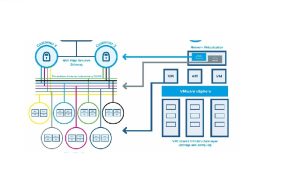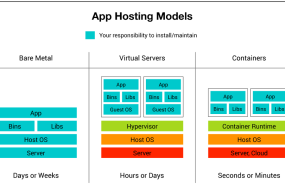
The landscape of data storage and hosting is constantly evolving, and object storage cloud hosting is at the forefront of this transformation. In this comprehensive exploration, we delve into the latest trends in object storage cloud hosting, offering insights that will empower you to make informed decisions in the digital era.
The Evolution of Data Storage
A Paradigm Shift
Object storage represents a paradigm shift in data storage. Unlike traditional file systems, object storage doesn’t rely on a hierarchical structure. Instead, it stores data as objects, making it more scalable and versatile.
Embracing Unstructured Data
One of the most significant trends in object storage is its capability to handle unstructured data. With the exponential growth of unstructured data, including multimedia content and IoT-generated information, object storage is becoming increasingly essential.
Scalability and Flexibility
Infinite Scalability
Object storage solutions provide infinite scalability. You can start with a minimal storage capacity and effortlessly expand as your data grows. This flexibility is crucial for organizations of all sizes.
Multi-Cloud and Hybrid Cloud Adoption
Another emerging trend is the adoption of multi-cloud and hybrid cloud strategies. Object storage’s compatibility with these approaches allows businesses to leverage multiple cloud providers and maintain data redundancy.
Enhanced Data Security
Data Encryption
Ensuring data security is a top priority, and modern object storage solutions incorporate robust encryption measures. Data is encrypted both at rest and in transit, safeguarding it from unauthorized access.
Compliance and Governance
As data privacy regulations become more stringent, object storage solutions are addressing compliance and governance requirements. These solutions offer tools for data classification, retention policies, and audit trails.
Cost-efficiency and Performance
Cost-efficient Storage Tiers
Object storage offers cost-efficient storage tiers, allowing organizations to balance their storage costs based on data access frequency. Infrequently accessed data can be stored at a lower cost.
Low-latency Access
New object storage systems are designed for low-latency access. This is especially important for applications that require real-time data retrieval and processing.
Overcoming Data Management Challenges
Metadata and Indexing
Efficient data management in object storage hinges on effective metadata and indexing. Modern object storage solutions are focusing on improving metadata management for faster data retrieval.
Data Portability
Data portability is a growing concern, and object storage solutions are addressing this issue by enabling seamless data movement between on-premises and cloud environments.
Final Words
Object storage cloud hosting is reshaping the way organizations manage and store data. By embracing the latest trends in this technology, you can optimize data storage, security, and accessibility while managing costs effectively.
Commonly Asked Questions
Q1: What are the primary use cases for object storage cloud hosting?
Object storage is well-suited for use cases involving large volumes of unstructured data, such as media and entertainment, healthcare, and IoT data storage.
Q2: How does object storage compare to traditional file systems?
Object storage differs from traditional file systems by organizing data as objects and not relying on a hierarchical structure. This approach makes object storage more scalable and versatile.
Q3: Are there specific industries that benefit the most from object storage trends?
Industries dealing with vast amounts of unstructured data, such as media, healthcare, and manufacturing, benefit the most from the trends in object storage.
Q4: How can organizations ensure data security in object storage?
Data security in object storage is ensured through robust encryption measures and compliance with data privacy regulations, which help protect data from unauthorized access.
Q5: What should businesses consider when implementing object storage solutions?
When implementing object storage solutions, businesses should consider factors like data access patterns, scalability, data security, compliance, and data management tools to make the most of this technology.
Advertisement







